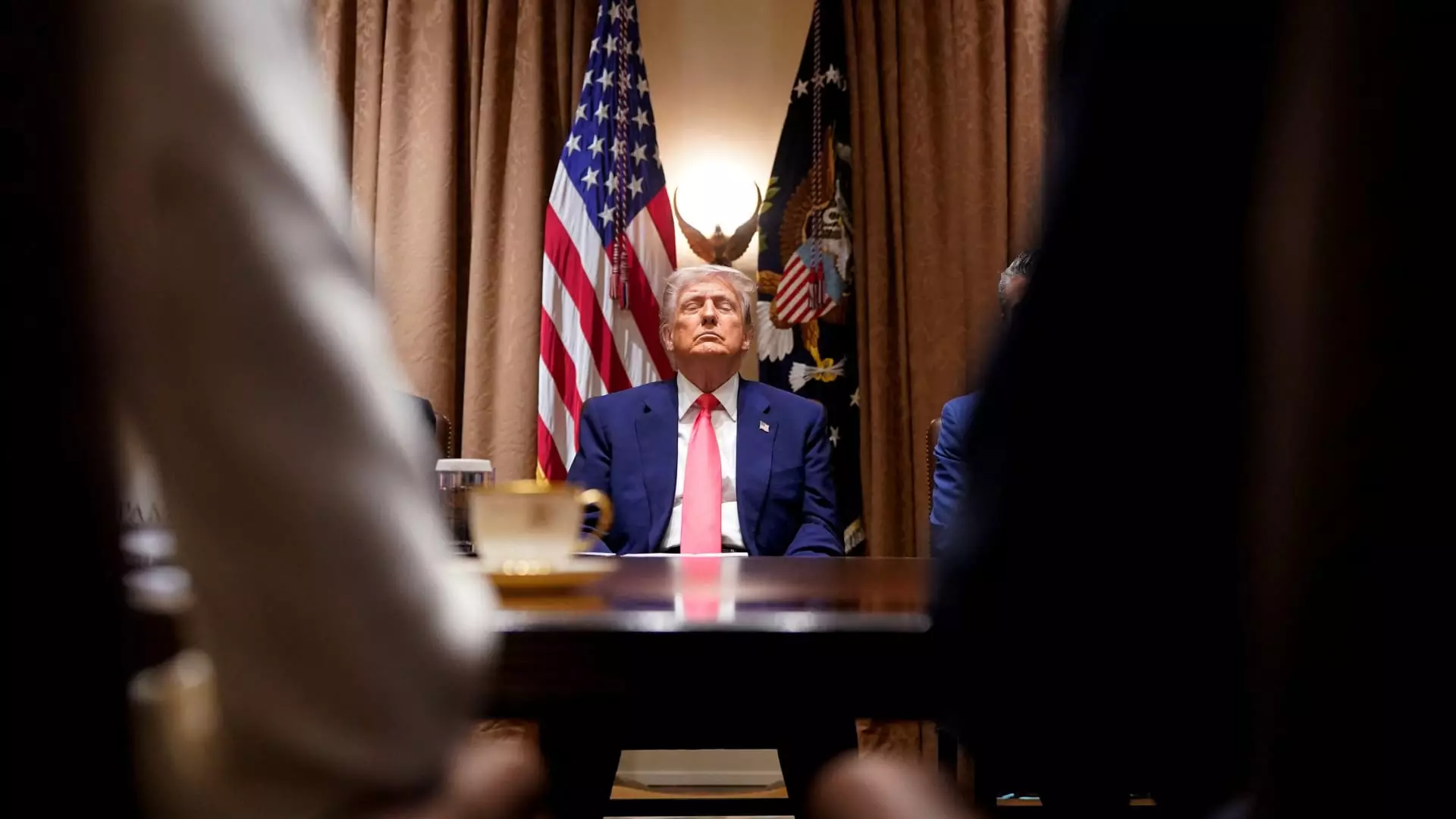In a courageous move that speaks to the heart of American democracy, a group of five small businesses has initiated a lawsuit against former President Donald Trump, challenging the sweeping new tariffs imposed on foreign imports. This legal confrontation, filed in the U.S. Court of International Trade, illuminates a significant issue: the balance of power between the executive branch and Congress regarding trade policies. The plaintiffs argue that Trump’s recent actions tread dangerously close to a constitutional overreach, as he relies on the International Emergency Economic Powers Act (IEEPA) to justify tariffs. This is not just a legal dispute; it is a declaration of the importance of legislative authority in an environment where executive action seems unchecked.
Misguided Vision: The Myth of Trade Deficits as ‘Emergencies’
At the core of the lawsuit is the assertion that trade deficits—longstanding features of the international economic landscape—do not constitute emergencies that warrant unilateral tariff actions. The rhetoric surrounding these tariffs casts them as a necessary response to a fabricated crisis, one that has repeatedly been shown to harm rather than help small business owners. “His claimed emergency is a figment of his own imagination,” the lawsuit states, underlining an essential point: imposing tariffs under the guise of protecting American interests fundamentally misrepresents the realities of global trade dynamics. History demonstrates that trade deficits are complex and do not inherently threaten economic stability, yet the administration’s framing suggests a simplistic narrative that plays to fear rather than fact.
Economic Ramifications for Small Enterprises
The plaintiffs, which include diverse small businesses from a New York wine importer to a Vermont cycling apparel company, highlight the tangible effects of Trump’s tariffs on their operations. For small businesses already operating on razor-thin margins, unexpected tariffs can spell disaster. Take Terry Precision Cycling, which anticipates a staggering $1.2 million in tariff costs by 2026. This projected financial strain echoes across the breadth of small businesses involved, illustrating how policy decisions made at the highest levels reverberate at the grassroots level. The lawsuit serves not only as a legal challenge but as a testament to the resilience and agency of small business owners who fear they are being left behind in a political landscape dominated by corporate interests.
A Call to Uphold Democracy and Representation
The plaintiffs’ case embodies a rallying cry for a fundamental principle: there shall be no taxation without representation. By seeking judicial intervention, they are not merely engaged in a battle against tariffs; they are advocating for an essential democratic process that ensures that legislation—especially those that impose economic burdens—is subjected to proper scrutiny and requires congressional authorization. This legal challenge reaffirms the need for accountability in governance, particularly in matters that can have profound economic impacts on everyday Americans.
The Bigger Picture: A Stand for Fair Trade
As this lawsuit unfolds, it draws attention to the larger implications of tariff policy in the United States. Small businesses are often the backbone of the economy, and their voices must be amplified in discussions that shape our economic future. Beyond the immediate effects of these tariffs, there lies a critical conversation about fair trade practices—a conversation that deserves representation and respect in the halls of power. In this ongoing showdown, the courage of these small business owners not only challenges a unilateral approach to trade but also champions the democratic ideals upon which this nation was founded. Their fight is not just for survival; it’s a stand for equity and fairness in the economic arena.


Leave a Reply